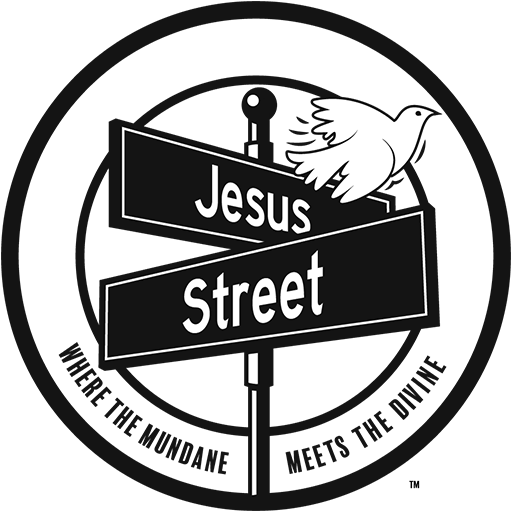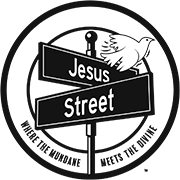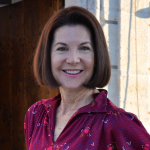When Home is Rubble and Shards of Glass
A few weeks ago, my adult son ended up stranded. Due to circumstances which are not pertinent to this story, he found himself on the side of a mountain road. He had $5; no credit card; a backpack with three days worth of trail mix; two water bottles, a sleeping bag, and his cell phone. He had no means of transportation other than his two feet.
When he called me, he was sitting in a corn field. He was hungry, so he wandered over to an Ingle’s grocery and spent his last money to buy a tray of hot macaroni and cheese, along with a Dr. Pepper. Where would he find his next meal? He had no idea; but he knew better than to linger in the Ingle’s parking lot like a vagrant. He started walking, trying to come up with a plan of action. Hitch-hiking seemed like his best option.
No mother or father wants to find their child in such a desperate situation. My heart was torn apart and, by 10 p.m. that night, I had driven to Western North Carolina and claimed my son. After a hot meal, a soothing shower, and a good night’s sleep, he came home.
Just writing that word — home — brings a sense of immense relief. My son was lucky: there was a place to which he could return, a place with family who could care for him and provide a warm bed. Such is not the case with the hundreds of thousands of migrants seeking a new life in Europe.
These pitiful men, women, and children have absolutely nothing — their home countries of Syria, Afghanistan, Eritrea and Iraq have fallen into the grips of chaos and destruction, wide-spread poverty, religious warfare and persecution. Houses have turned to rubble; schools are non-existent; threats of violence and warfare invade daily routines. Things are unsupportable enough that people risk drowning and face extreme conditions in the hope of finding a better life in Europe.
 Ironically, that hope is about as solid as a wisp of smoke.
Ironically, that hope is about as solid as a wisp of smoke.
European cities are already over-crowded; the socialist governments are already overburdened. To be honest, as a person who has lived in Paris for the past year, it would be easy to say, “There is no room at the Inn.” The Metro trains, sidewalks, and parks are often unpleasantly full; there is already a tent city of homeless people living under a bridge in northern Paris.
At times, Paris doesn’t feel very French: the streets are bustling with people from every nation and tongue, wearing African robes, Islamic head scarves, Indian saris, speaking Chinese, Hindi, Arabic, Farsi, and other “strange” languages that I cannot recognize. Forget the ideal of the melting pot: these ethnic identities are not being blended into a common cultural soup.
To be fair, many of the middle-aged Islamic immigrants have created successful kebob stands or small ethnic shops. But many of the adolescent males who have grown up in France have failed to assimilate. Les banlieus — the Parisian equivalent of high-rise ghetto villages — are packed with Africans and Middle Easterners who haven’t found their niche.
Knots of these young men overrun the tourist sites, aggressively hawking miniatures of the Eiffel Tower and fake Gucci handbags. Some operate near the Louvre or Notre Dame as pick pockets or con artists. And worst of all, an unknown number of these disenchanted souls have embraced radical Islam, as evidenced by the horrific attacks at the Charlie Hebdo magazine, the Kosher grocery store, and the recent Paris-bound train. (Thank God literally for those three young American men and their courageous impulse to rush the attacker.)
Who knows how many jihadis are hiding amongst the refugees currently overwhelming the immigration systems? This is an opportunity to implant more of the enemy among us. Naturally, the first impulse is to push back against the swells of humanity winnowing through the chinks in the border along the Mediterranean coast. The latest figures report that 320,000 migrants have reached Europe so far this year, with thousands more expected to arrive.
The European Union is scrambling to develop a plan. The reaction among the 28 member countries covers the spectrum from “don’t help the migrants because it encourages more to come” to “force the Southern states of Italy and Greece to deal with them” to “create a policy in which each country will accept its share of the burden”.
France and Germany are working to convince each EU nation to accept a percentage of the migrants on the basis of human rights. The German economy actually needs workers, so any migrants who wind up there have a fighting chance. But jobs are scare in France and throughout much of the rest of Europe. Anxiety grows about this unexpected influx of people who arrive cold, starving, shoeless, and without local language skills. While committees in Brussels wrangle and politicians make impassioned speeches, thousands are suffering in inhumane conditions that may spread disease, violence, and crime. In some cases, such as Calais, law abiding citizens are attacking the migrants in an effort to make them move out of their communities. The situation is a powder keg, threatening the general welfare and safety of all.
There is no time for apathy, bureaucratic quicksand, or hard-hearted Nationalism. This crisis will continue to mushroom, and it must be dealt with swiftly.
But how? Like everyone else, I have been vainly wishing for practical and measured solutions.
Then God spoke into my heart recently during a time of silence; I was sitting quietly in his presence, simply being still. I was at peace, floating in the calming energy of his surrounding love when, out of the blue, I received startling information. To be honest, the teaching was not in line with my thinking, but I could not refute it because it was given as a spiritual truth.
My mind’s eye saw the swarm of unwashed, hungry, swarthy migrants, such as the ones who have been breaking down barriers to sneak into commercial trucks bound from Calais to England. These desperate crowds defy order and civil law in search of a better life. Seen in a certain light, they are a threat to stability and prosperity. Yet the difficult teaching revealed was this: in God’s eyes, every life is sacred; every life is equally valued.
God sees the migrants as his children, each one beloved by him and known by him, no matter their race or religion. No matter if they even know him or love him. He is pained by their sorrows, their illnesses, their sufferings. He watches as they shiver in the cold of a rainy night without shelter or gnaw on roots of wild plants to quell the rumblings of their stomachs. And he calls us to recognize them as sacred products of his handiwork, as lovely and prized as the blushing roses in his garden.
I was extremely humbled by this revelation; it squelched the fearful side of me that naively wished all of the migrants would simply go back home. Thanks to the ravages of religious wars and political upheavals, many don’t have a home anymore; unlike my son, they have no hearthside with a boiling kettle and a loving mother or father waiting to receive them and bind up their wounds. There must be a holy solution to this tragedy because God has called us to be our brother’s keeper. He would not call us to carry more than we are capable of bearing. But we can only begin such as task by relying on the love of God and the strength of Jesus Christ.
Much of Western Europe is secular, and faith in the God of the Bible is viewed as an useless relic. Without that power of faith acted out in love, the boulder will be too heavy to lift. Humanitarian ethics will only take you so far; this crisis requires a miracle that only the love of God can provide. My prayer is that the universal church, the Vatican, and other followers of Christ around the globe will reach out across the chasm and offer help in the name of Jesus. Nothing short of this will do, or the entire world may suffer dearly for our lack of compassion.





2 Comments
God does care about the refugee and reminds Israel that once they were strangers in a distant land – Assyria. Never forget that we all need food, shelter, and justice to protect us.
This is a critical reminder during this time in our world’s history. Thank you for sharing your heartfelt thoughts, observations, and most of all God’s voice. Thank you.